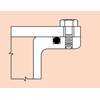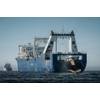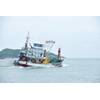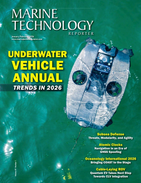Plastic Free July and a Treaty in the Making
Around 170 million people participate in Plastic Free July each year. It’s a month-long challenge to avoid as much single-use plastics as possible.
“We ingest about the equivalent of a credit card of microplastics every week*, and these tiny particles of plastic have found their way to our blood and brains,” said Greenpeace during the month. “Scientists are only beginning to understand the long-term effects of plastics on our health, but many of the chemicals present in plastic are linked to serious health issues such as endocrine disruption, insulin resistance, decreased reproductive health and cancer.
“That is why this Plastic Free July, we’re demanding action from corporations and governments. We need companies to phase out single-use plastics, stop using harmful chemicals and roll out accessible reuse and refill systems.”
The demands come ahead of the second part of the fifth Intergovernmental Negotiating Committee (INC-5.2) session for a Global Plastics Treaty which is set to take place in Geneva, Switzerland, from August 5 to 14.
Environmental organizations such as Greenpeace have been vocal on the need for an ambitious outcome.
A plastic bag policy can lead up to 47% reduction of bag litter on shorelines, Greenpeace says. A 50% increase in refillables in coastal countries could reduce the number of waste PET bottles entering the ocean by 86%.
This week, more than 60 global experts added their voice by publishing open letters demanding a binding Global Plastics Treaty grounded in science, justice and bold political will. The letters, published in Cambridge University Press journal Cambridge Prisms: Plastics, emphasize that the stakes at INC-5.2 could not be higher: this is the world’s best opportunity to secure a binding agreement that tackles plastic pollution across its entire lifecycle.
The authors call for cumulative risk assessment, exposure monitoring and transparent chemical regulation. They remind negotiators that the costs of inaction are not abstract but can be counted in cancers, reproductive harms and respiratory conditions.
The open letters provide a roadmap for treaty negotiators which includes:
• Legally binding targets to cap and reduce plastic production. Phase-out of toxic additives and chemicals in plastics.
• Global health safeguards to protect human health. Structural inclusion of affected communities in treaty design and implementation - especially Indigenous Peoples, informal waste workers and fence line communities.
• Independent scientific oversight insulated from corporate lobbying and greenwashing.
• Robust financing and compliance mechanisms to ensure treaty enforcement and support for low-and middle-income countries.
An ambitious treaty has backing from over 100 countries. Yet INC-5.2 arrives after prolonged delays, consensus deadlock and obstruction by a handful of low-ambition states. The letters argue that the treaty’s credibility and effectiveness now hinge on political courage, not scientific uncertainty.
“This is not just a call for action, this is the scientific community bearing witness,” said Professor Steve Fletcher, Editor-in-Chief of Cambridge Prisms: Plastics and Director of the Revolution Plastics Institute. “We’ve watched the evidence pile up for decades. This treaty is a test of whether the world is prepared to govern plastics in a way that reflects the scale and urgency of the crisis.
“The scientific consensus is clear,” he says. “The only question is whether governments will respond.”
(An estimated 9 to 14 million tons of plastic waste ends up in the world’s oceans each year.)
*This equates to about 5 grams, and the figure has been disputed.
















 February 2026
February 2026



